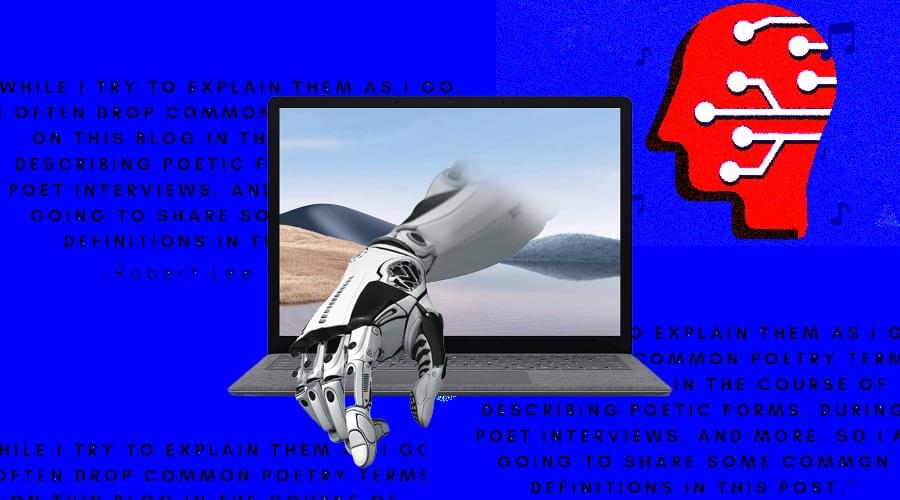View insights.
The growth potential of intelligent machines is attaining milestones almost every other day. Each day, new publications and media houses are reporting the new achievements of AI. But there were still questions about the creative potential of AI. Experts believe that artificial intelligence machines will never be able to achieve the creative consciousness that human intelligence possesses. Well, AI has again proved them wrong! The technology is now capable of creating its own art, out of its own imagination, and also poetry, that only the most deeply conscious human brains can do.
There have been several instances where programming and poetry have converged into generating some of the most outstanding pieces in the history of tech. Programming itself has its own set of minimalist aesthetics that does not take up much space and does not take too long to execute. Also, there have been many programmers who had links to poetry and art, which makes it easier for them to curate a mindblowing tech that can yield the same standard of results. Nowadays, companies like OpenAI create futuristic technology that is not only advanced but also boldly creative. In fact, its poetry-writing AI has made huge strides over the internet!
Verse by Verse, is a Google tool, that takes suggestions from classic American poets to compose poetry. The tool uses machine learning algorithms to identify the language pattern of a poet’s work and apply it to the poetry it generates. The tool allows users to choose from 22 different American classical poets and the type of poem they would like to write. The program offers poetic forms such as free verse, and quatrain, and also allows choosing the number of syllables to choose. What all it needs is, an opening line. Once given the first line, it generates the rest of the poem on its own, giving suggestions at every line, making it more interactive compared to other Open AI’s GPT-2 programs.
